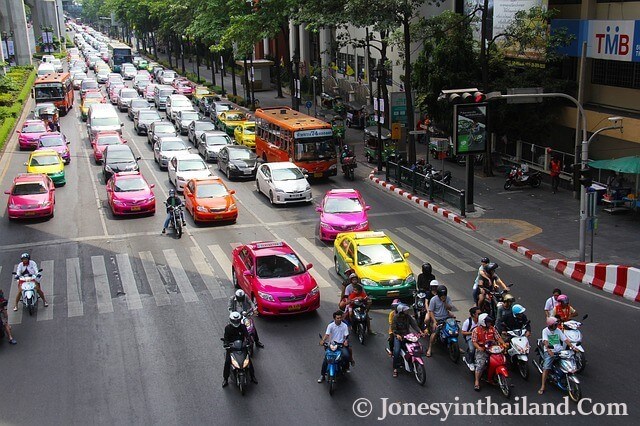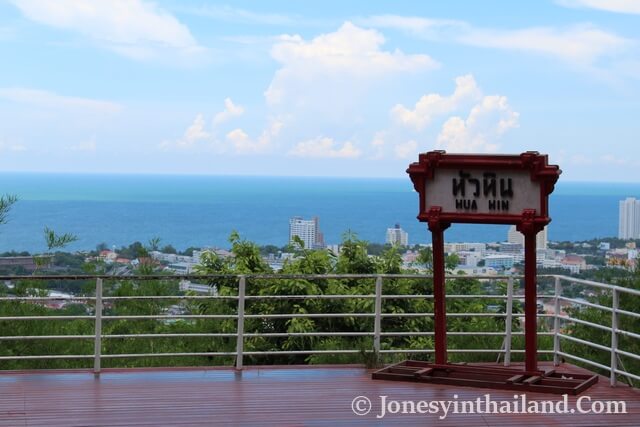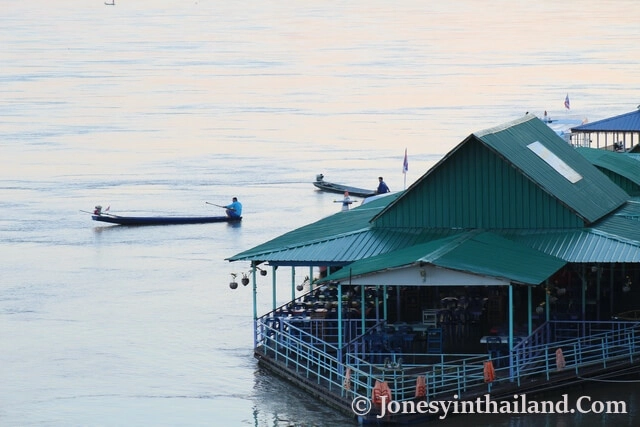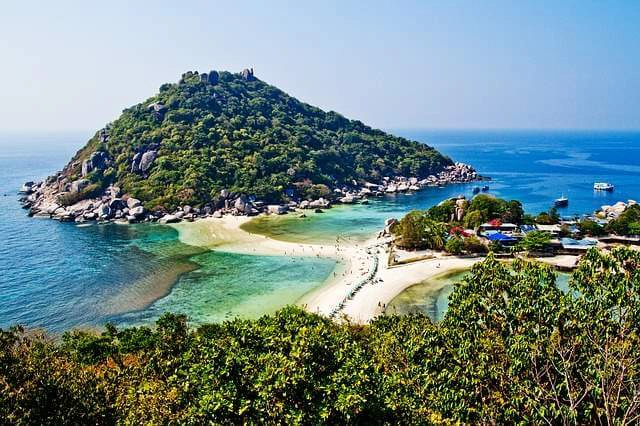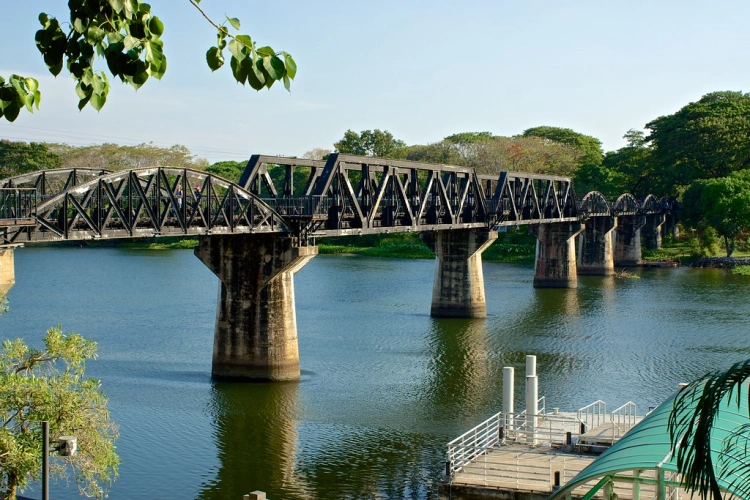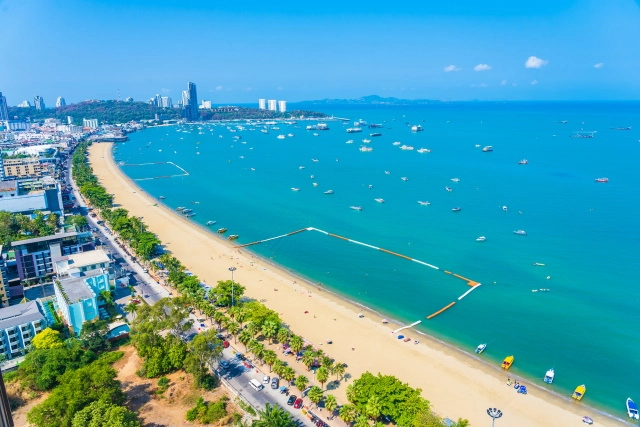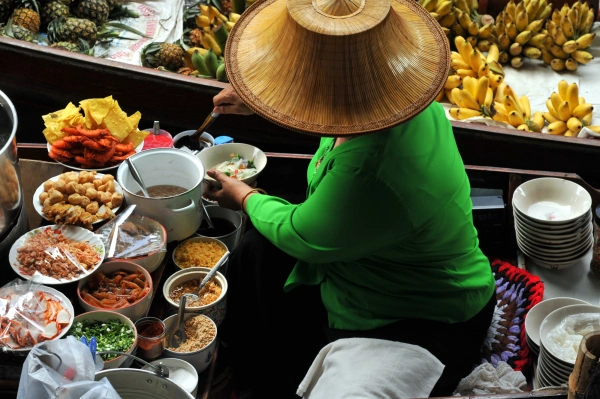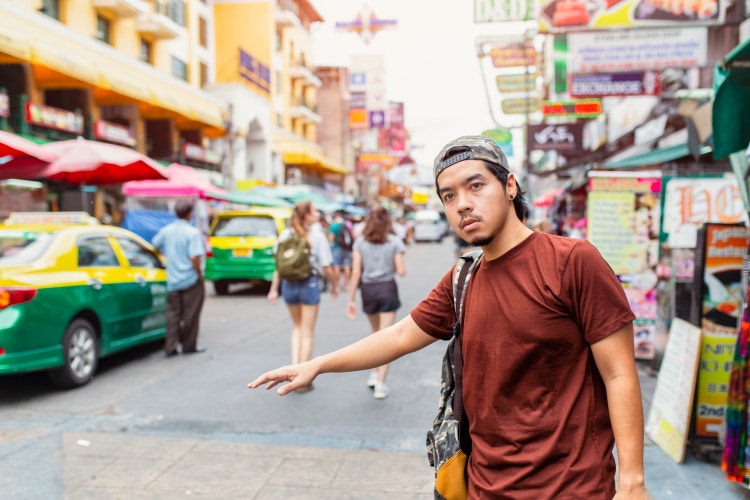Is the food safety in Thailand in terms of Thai food sold on the street stalls and restaurants good or bad? Yes, and no, and not a straight forward ‘yes or no’ can be given.
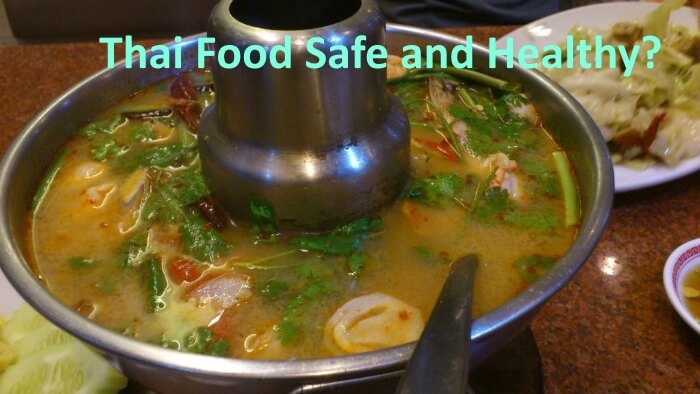
Concerns for each person are also different. While some people come on holiday to Thailand and just want to splash out and enjoy themselves without being overly concerned about how safe and healthy the food is, another may need to because of health issues, allergies, or they’re just health conscious in general, holiday or not.
After visiting and living in Thailand since 2008 I have had to drop the just eat anything attitude that I first had and look a little closer in to staying healthy while living here. High blood pressure and cholesterol has influenced this attitude. Staying in Thailand long term or an expat; it’s a must to consider food safety if health.
Thai Street Food Safety and Cleanliness
Again this depends on the person, health concerns, wanting to enjoy eating Thai food as the locals do, a bit too posh ‘Hi So’ to allow yourself to eat how lower classes do, or the backpacker on a budget saving a few baht.

I have eaten street and open market food hundreds of times in the past and only got sick once. This once, I got sick with food poisoning was after eating seafood near Bang Saen beach, likely the oysters. Never again.
Cleanliness: This is a concern of course, the food is cooked outdoors and next to busy roads. How well do they keep their hands clean? Are utensils clean and plates? In terms of cleanliness it’s hard to be 100% sure, however, what says the restaurant which looks great in the dining area isn’t running a kitchen with unhygienic practices, and are the cooks keeping their hands clean?
On a positive note for the street hawkers, you can see what they are doing in front of you (no door to hide what’s going on inside). You will see some vendors using throw away plastic gloves, which covers the hand hygiene issue.
Quality of food: Without knowing the actual facts I imagine a lot of the food quality, including meat, vegetables and ingredients could be quite low because they’re likely to be bought in bulk at the cheapest prices. And, buying from a vendor is cheap, so expecting the best meat cuts and organic veg is slightly too much to expect.
Quick turnover of food: Many food stalls have a fast turnover of food and limit how many dishes they serve. This in a sense could make one aspect of them safer than some restaurants because the food is likely to be all used that night, and there is no order you’re going to make that is rarely cooked. Fresh food is then bought the next day at the early morning or night market.
Side note:
—
An article I read recently about pesticides found in vegetables and fruit in Thailand (this happens worldwide with various degrees of chemical residues). Whether bought from the local market or in supermarkets, in terms of unsafe levels of contamination there is little difference. Even organic crops were found with residues of chemicals above the safe to eat scale. On a positive note, what is written in the article and others is that improvements in testing have improved.
I follow this personal advice within all my views of Thailand ‘it’s a developing country‘and will catch up with what other countries have developed better in the future, so I stay well clear of becoming a complaining farang about standards in Thailand.
This subject can open up a large can of worms in terms of scientifically proven which foods are safe or not, what our bodies can consume safely, differences of opinions and studies, and much more. Not for this article!
—
I rarely eat at street stalls now, but I do buy certain products from hawkers that are well priced and seem to be good in quality. Today, an example (see picture), I bought shelled peanuts that were super fresh that you can test for 20 baht, coconut water with added flesh taken from the coconut in front of me for 23 baht and barbecued chicken for 70 baht. Nothing fried, fresh, nutritious and cheap.

I buy what I am happy to buy in my community and have the experience of trying to speak and learn Thai (trying, it can be very trying). I enjoy this part of my Thai life, and the hawkers really enjoy the westerner doing what the locals do and probably my interesting Thai with an English accent is entertaining. It’s sanook (means fun in Thai).
Salty, Spicy, MSG and ‘Waan Maak’ (Very Sweet)
Lots of Thai food, whether in a restaurant or sold at a street stall can be very sweet, have a lot of salt and MSG (Monosodium glutamate), and be spicy.
Spicy is no problem. Just ask for non-spicy and this is of no concern to most peoples health.
Go to a noodle shop or stand and see the jars on each table to add spice, sugar, sour, and salty fish sauce to an already flavored bowl of noodles. You will see most Thai’s adding lumps of flavoring which can give you an idea how the majority of Thai people view food…it’s all about being Aroy (tasty).
When asking for a coffee, I have asked in Thai language many times not sweet (Mai Waan Krub) which more than often is just sweet. If I ask for only a little sweetness it can taste anything from quite sweet to tooth decay in a drink sweet. Many foods are over sweetened here.
Cooking oil: Oil used for cooking is a big concern for me. I see the oil used when food is frying on the street and it does not look healthy and is most likely palm oil. Many restaurants use good quality oil, especially the better and higher priced places.
MSG: Many people including myself don’t want or as little as possible MSG in their food. A lot of Thai restaurants use MSG for flavoring, and way too much of it. My girlfriend uses MSG with her cooking and I try to suggest it’s not good for you, and lots of her food she buys has way too much MSG. As mentioned, for most Thai people it’s all about tasty food. If it’s a concern for you I would ask the restaurant if they use MSG and not to add it to your food.
I love Thai food and spicy. It’s so unfortunate that the worse things for me is the too much of this or that and the dodgy oil. Without the large amounts of seasonings the food is great and healthy.
Thai Food Safety Tips
- Busy restaurant: Whether a hawker stall or restaurant, being busy with customers is an advantage. There will be a good turnover of food, keeping ingredients fresh. This applies everywhere in the world and not just Thailand.
- Ask before ordering: If you have certain needs (i.e., less salt, not sweet, without MSG or anything else) find out the words in Thai and write them down. For short statements they’re not hard to say if you have the words written down (tone and accent can be tricky though).
- Flies: If meats are being used make sure there’s not a host of flies also looking for dinner.
- Water and ice: This is up to you. Some people will avoid drinking any water other than bottled and be concerned about the ice. I have never been too over concerned and been fine, although I don’t drink tap water. The water you see at the food stands with ice already inside the large flask is from large bottles of reversed osmosis water.
- Cleanliness: Maybe try and see if the place looks clean, but for restaurants who knows. It’s a risk we take everywhere in the world for our evenings out or getting a quick bite while busy and not wanting to cook.
- Medicines: You may want to bring medicines from your home country in case you get a dose of food poisoning or a bit of travelers diarrhea. You can get all the necessary medicines from pharmacies in Thailand and cheap, so you may want to buy them when you arrive. If they don’t speak English well, pointing at your rear end and stomach making painful facial expressions will work, guaranteed. Rehydration salts are a useful medicine to pack or buy in Thailand.
- Traveling in the morning: It might be wise to be a little cautious with what you eat, where and time of the night you’re eating if the next morning you will be hopping on a bus, train or plane. If food issues are going to hit you you’ll be better off it happening sooner than later, and have the time to try and recover. Traveling when you’re in the throws of stomach issues is not fun, as experience has shown me (India, not Thailand).
Final Thoughts
Based on personal experience I have had plenty of great experiences safely eating in Thailand, including street stalls. Of course there are issues with ingredients, cleanliness, unsure if vegetables are washed, how clean the kitchen staffs hands are and maybe other issues, but this applies to most if not all countries, especially developing countries.
If you’re here for a holiday it would be a shame to miss out on the experiences of eating in the various ways you can in Thailand. This is if you have no special diet concerns, of course.
As an expat that has had to reduce high blood pressure and cholesterol, I have had to be much more vigilant and health conscious, cutting out the high salt, sugar and fatty/greasy foods. It’s so much fun and sociable in Thailand that it’s easy to treat half the time here as a holiday, but for some long term stayers and expats it may catch up with them.
If you’re a person with more concerns including pesticides, organic foods and how healthy is the meat used, then you’ll need to research certain subjects more. It’s outside the scope of this article and is a global issue, not only Thailand’s.

I’m Jonesy. The one responsible for whole lot of things including having this Thailand site up and running. I first arrived in Thailand in 2008 and being a web developer it made sense to create a website and write some stuff about my second home. Enjoy your travels!

